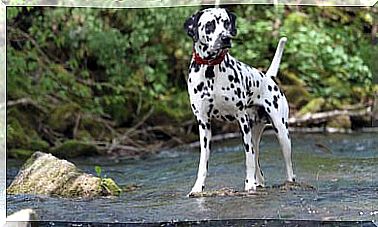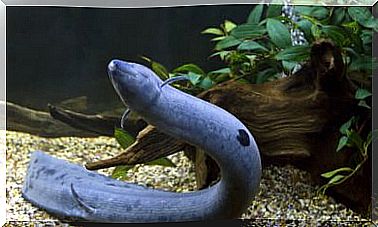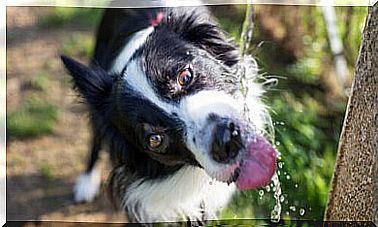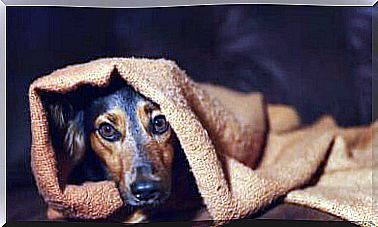Diets Suitable For A Dog With Liver Disease
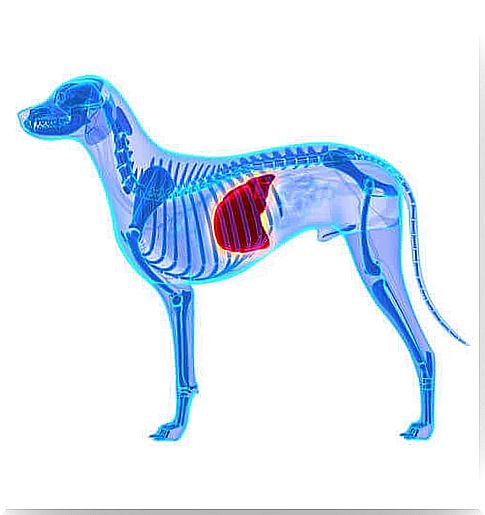
Disorders associated with malfunctioning organs must be treated with special care. In the case of a dog with liver disease, one of the best remedies we have available is diet control. Today we are going to give you some nutritional guidelines that will help your pet.
Symptoms of a Dog with Liver Disease
A dog’s liver, like ours, is one of the most important internal ‘control centers’. In it, numerous tasks are performed, including the metabolism of a myriad of nutrients, the production of bile – necessary for the correct processing of fatty acids -, the elimination of toxic or harmful substances from digestion and the metabolism of drugs.
As you can see, the liver’s number of functions makes it an indispensable organ. So when it doesn’t work as it should, the first symptoms don’t take long to appear. The most common are usually:
- Lethargy and lack of appetite.
- Vomiting and diarrhea usually appear frequently, accompanied by increased excessive thirst.
- One of the more specific symptoms is jaundice, which is nothing more than a yellowish color to the gums and other tissues.
- Sometimes, lack of coordination and excessive salivation can appear in the most acute cases of hepatic encephalopathy.
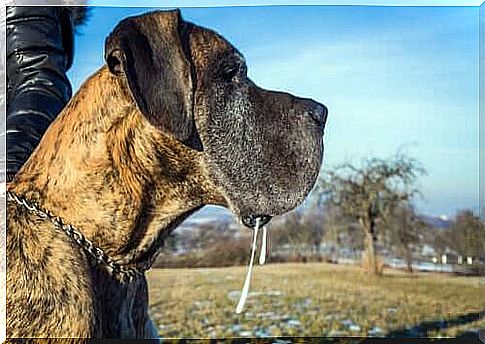
What should the protein intake be?
As it is an organ that intervenes to a greater or lesser degree in nutritional and digestive issues, it is clear that the diet of dogs with this type of disease must be controlled at all times. In this sense, the caloric intake of our animal’s daily diet varies from the common one.
Although proteins must remain present in the diet, it is important that they be quality proteins. If the caloric intake offered to the animal is not optimal, the liver will have more difficulty doing its job. A good idea is to cut down on animal protein and replace it with vegetable or milk protein. Of course, before doing this, consult your veterinarian to confirm that your pet is not intolerant of this type of food.
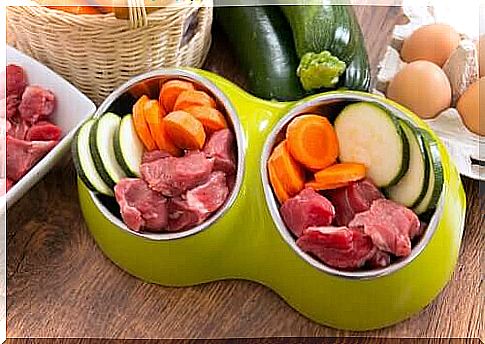
Currently, there are specialized rations to feed a dog with liver disease, so they are also good options, although they are less affordable. If you choose to eat at home, tofu as a protein supplement can be a good option.
Additional Tips for Feeding a Dog Suffering from Liver Disease
As we’ve said before, a dog with an affected liver will have associated gastrointestinal problems such as diarrhea. Therefore, the supply of soluble fiber – such as that contained in sugar beet – is a good way to help the intestinal flora. In addition, fiber can regulate intestinal transit and get rid of endogenous toxins, freeing up some of the liver’s work.
Vegetables are not incompatible with this type of diet, so you can include foods such as carrots in your pet’s diet. Also, carbohydrates – like rice – in moderate amounts are also a good idea.
The vitamin supply that a dog needs in these conditions must be reinforced in certain vitamins, especially B, C, E and K. As for minerals, it is necessary to ensure that there is no shortage of zinc and potassium, among others, as they act as antioxidants. However, you should try to reduce your intake of foods rich in sodium or copper, as they affect the liver a lot.

